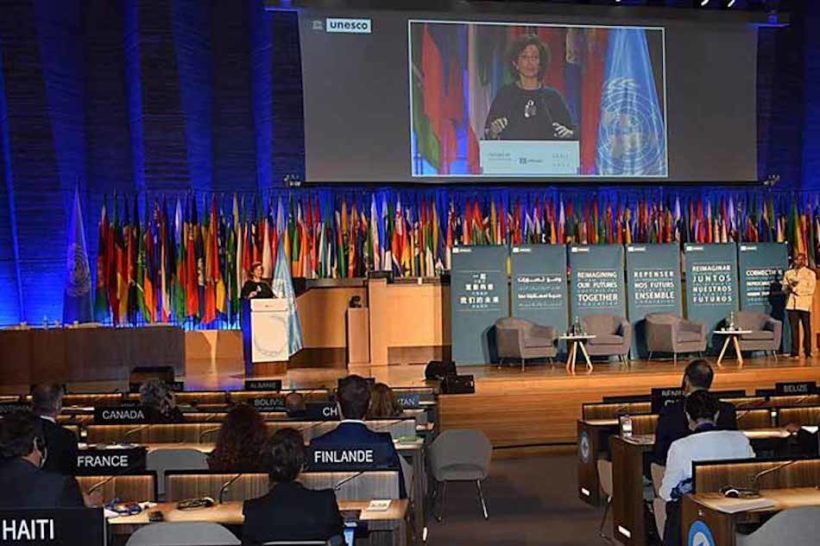The 41st General Conference of Unesco ended this week with important steps towards the objective of placing science at the service of peace and development, with an inclusive and multilateral vision.
The forum of one of the governance bodies of the UN entity specialised in education, science, culture and information met in this capital between 9 and 24 November, with important moments such as the commemoration of 75 years since the creation of Unesco and the re-election of the French Audrey Azoulay for a second term as Director General.
The 193 Member States adopted the first international framework on Open Science, aimed at making it more transparent and accessible to human beings.
Also, for the first time, this concept focused on inclusiveness and international cooperation, which in principle should enable the use of open licences and the sharing of data and information for the collective benefit of humankind’s scientific achievements and innovations – in reality a colossal challenge – was defined.
The Covid-19 pandemic highlighted how open science practices, including access to scientific publications, data sharing and collaboration, can accelerate research and strengthen the links between science policy and society, said Azoulay.
According to the Director-General, the recommendations issued by Unesco in this field will foster inclusive benefit and cooperation, based on common understanding, investment in infrastructure and services, digital literacy, capacity building and the promotion of innovative approaches.
Unesco’s 41st General Conference also saw the adoption of recommendations for the ethical use of Artificial Intelligence (AI), an initiative described here as historic.
The world needs rules for AI to benefit humanity, and we have taken an important step with this first global normative framework, which gives states the responsibility to implement it at their level, Azoulay stressed Thursday in a press briefing.
The recommendations on AI are based on principles such as the protection of human rights, individual freedoms and the environment, inclusiveness and the promotion of peaceful and just societies.
The normative framework includes a call for data protection, transparency in its use, a ban on the use of social markers and mass surveillance, and UNESCO’s support for implementation and evaluation.
The Director-General said the recommendations have a follow-up mechanism by the UN body.
At its 41st General Conference, Unesco also adopted the Paris Declaration, a global call to invest in the future of education, an agreement adopted at a meeting that brought together heads of state and government and ministers from 40 countries.
The impact on education of the Covid-19 pandemic, which has left 1.6 billion children and adolescents out of school, with the risk that some of them, living in the countries of the South, will never be able to return to school, was also discussed.
The Report on the Futures of Education, the result of two years of work by a commission led by Ethiopian President Sahle-Work Zewde, was also presented.












